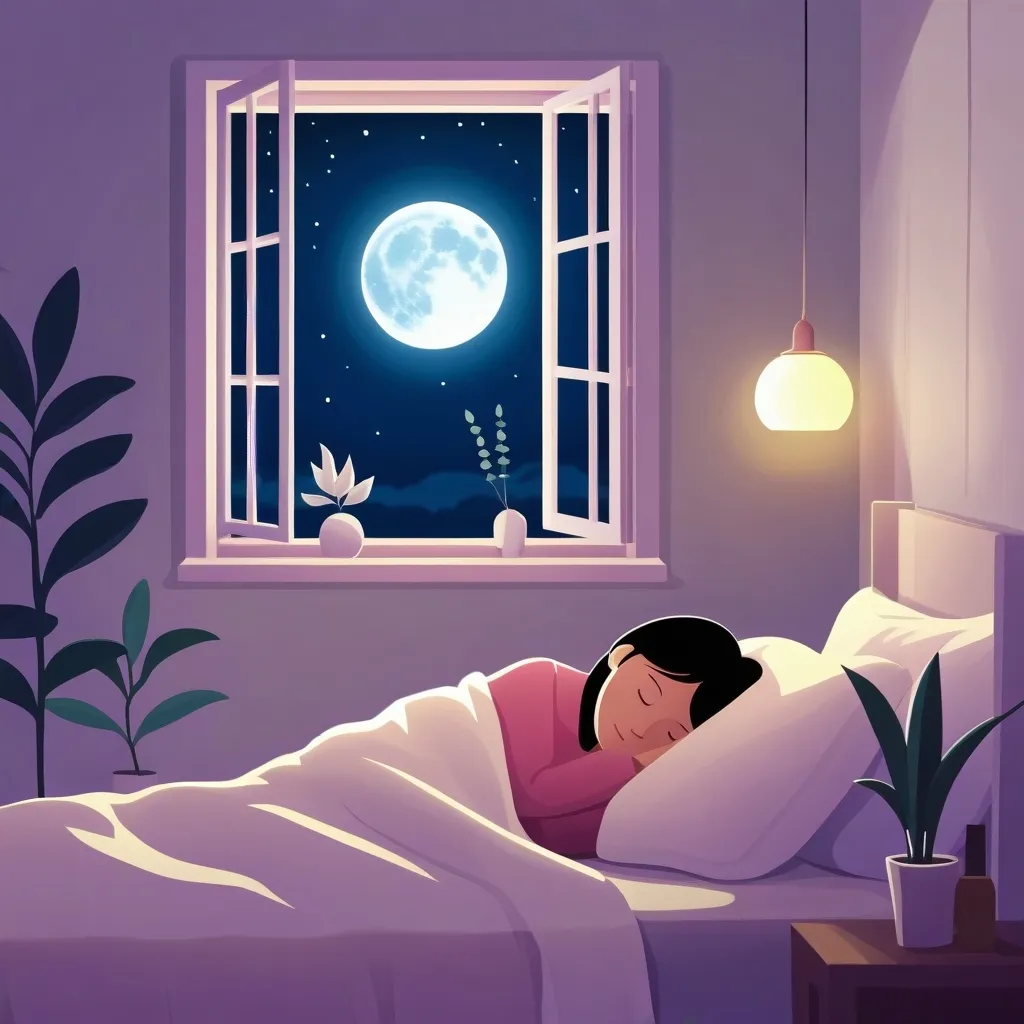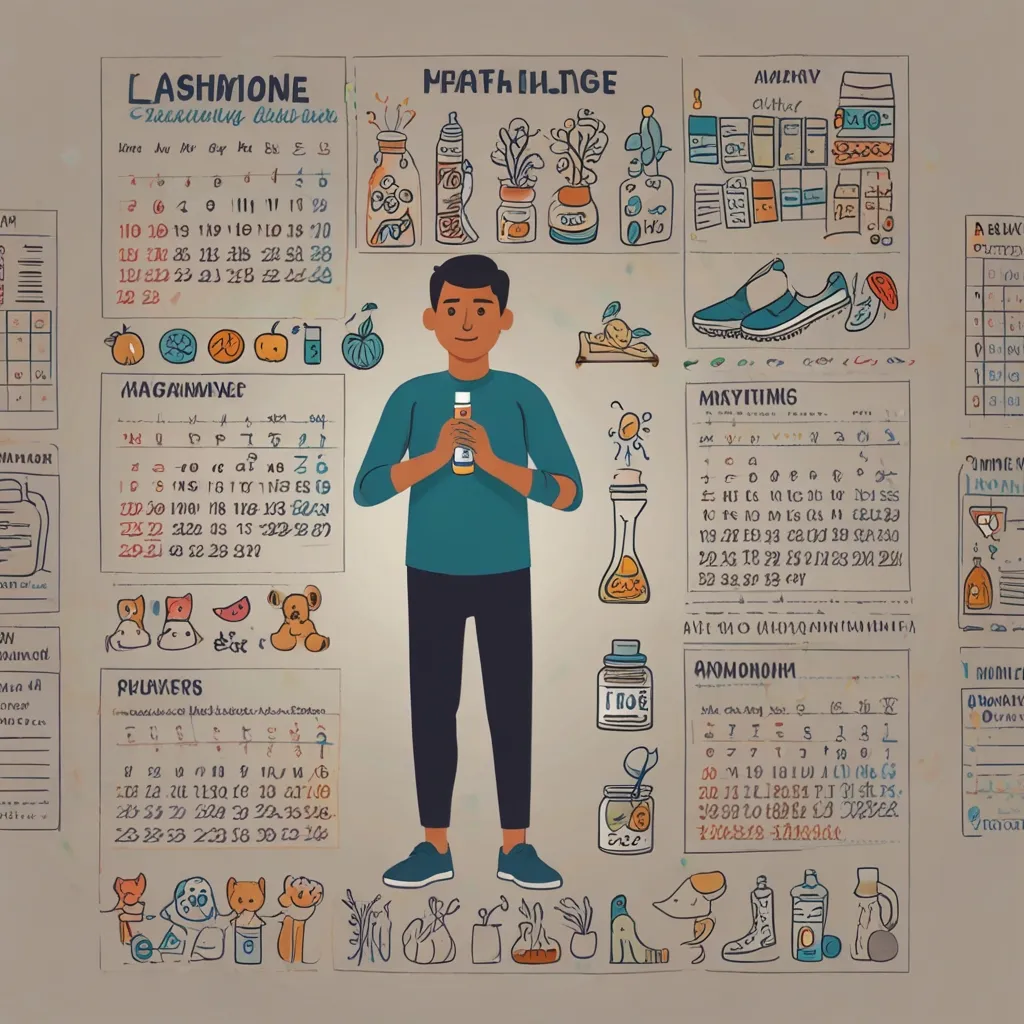Sleepless Nights to Life Lessons: What Insomnia Taught Me
Insomnia is like that annoying friend who overstays their welcome. But here’s the thing - this unwanted guest might just have some valuable life lessons tucked away in its sleepless suitcase. Let’s dive into the wisdom that comes from tossing and turning, shall we?
The Art of Letting Go
You know that feeling when you’re lying in bed, staring at the ceiling, willing yourself to fall asleep? Yeah, that’s not how it works. One of the biggest lessons insomnia teaches is the importance of letting go. It’s like trying to catch a butterfly - the harder you try, the more it eludes you.
Instead of wrestling with your pillow, focus on creating a sleep-friendly environment. Keep your bedroom cool and quiet, invest in some blackout curtains, and make sure your bed is comfier than a cloud. And for the love of all things holy, put away those devices! The blue light from your phone is like a mini sun telling your brain it’s party time.
Routine: It’s Not Just for Boring People
Establishing a routine might sound about as exciting as watching paint dry, but trust me, it’s a game-changer. Going to bed and waking up at the same time every day (yes, even on weekends) helps regulate your body’s internal clock. It’s like training a puppy - consistency is key.
Think of your body as a fancy machine. You wouldn’t expect your car to run smoothly without regular maintenance, right? Same goes for your sleep schedule. Stick to it, and you’ll be purring like a well-oiled engine in no time.
Morning Sun: Nature’s Caffeine
Here’s a wild idea - start your day with some good old-fashioned sunshine. Morning light is like nature’s caffeine, minus the jitters. It helps set your body’s internal clock, making it easier to fall asleep at night.
Try taking a quick walk outside first thing in the morning. It’s like killing two birds with one stone - you get your daily dose of vitamin D and a mood boost to boot. Who knew being a morning person could be so rewarding?
You Are What You Eat (Even in Your Sleep)
Turns out, your midnight snack choices might be sabotaging your sleep. Foods like nuts, fish, and dairy can actually promote better sleep. On the flip side, too much sugar, caffeine, or alcohol can turn your peaceful slumber into a restless nightmare.
Consider swapping your evening espresso for a warm glass of milk. It’s like a cozy hug for your insides, helping you relax and prepare for sleep. And maybe save that five-course feast for lunchtime - a lighter dinner can work wonders for your sleep quality.
Sweat Your Way to Sweeter Dreams
Exercise is great for sleep, but timing is everything. A morning or early afternoon workout can leave you feeling energized during the day and ready for sleep at night. It’s like setting yourself up for a perfect day-night cycle.
But beware the late-night gym session! Exercising too close to bedtime is like trying to slam on the brakes while flooring the gas pedal. Give your body a few hours to wind down after a workout before hitting the hay.
Stress Less, Sleep More
Stress and anxiety are like uninvited guests at your sleep party. Learning to manage them is crucial for a good night’s rest. Meditation, deep breathing exercises, and yoga can be your bouncers, kicking stress to the curb.
Try taking a few minutes each day for some deep breathing. It’s like a mini-vacation for your mind, helping to reduce stress and improve your overall well-being. Creating a relaxing bedtime routine can also signal to your brain that it’s time to wind down. Maybe a warm bath, some light reading, or some gentle stretching?
Your Bedroom: Sleep Sanctuary or Distraction Central?
Your sleep environment can make or break your chances of a good night’s rest. Temperature, noise, and comfort all play a role. Think of your bedroom as a sleep sanctuary - a place dedicated to rest and relaxation.
Invest in a good mattress and pillows. It’s like buying a first-class ticket to Dreamland. And don’t be afraid to use earplugs or a white noise machine to block out any disturbances. Your future well-rested self will thank you.
Beware the Sleep Saboteurs
Certain habits and substances can be real party poopers when it comes to sleep. Alcohol might make you feel sleepy at first, but it can disrupt your sleep later in the night. And caffeine? It’s like inviting the Energizer Bunny to your bedtime routine.
If you’re a coffee lover, try to cut yourself off in the afternoon. And while a nightcap might seem tempting, it’s best to limit alcohol, especially close to bedtime. Your body will thank you in the morning.
Don’t Be a Hero - Ask for Help
Sometimes, no matter how hard we try, insomnia just won’t budge. That’s when it’s time to call in the professionals. Cognitive Behavioral Therapy for Insomnia (CBT-I) and other forms of therapy can provide you with the tools you need to kick insomnia to the curb.
Don’t be afraid to reach out to your doctor or a sleep specialist. It’s like having a personal sleep coach in your corner, ready to help you achieve your rest goals.
Empathy: The Silver Lining of Sleepless Nights
Living with insomnia can feel isolating, but it also teaches you the importance of empathy and understanding. When you’re lying awake at 3 AM, it’s easy to feel like you’re the only one in the world going through this. But guess what? You’re not alone.
Connecting with others who have experienced insomnia can provide a sense of community and support. It’s like joining a secret club, except instead of a secret handshake, you have dark circles under your eyes.
The Financial Wake-Up Call
Insomnia doesn’t just cost you sleep - it can hit your wallet too. From sleep aids to reduced productivity at work, the financial implications can add up. Learning to manage insomnia can save you money in the long run by improving your overall health and work performance.
Think about it - being more productive at work, avoiding costly treatments, and improving your health can all lead to financial benefits. It’s like investing in a good night’s sleep pays dividends in your everyday life.
The Whole Package: A Holistic Approach
Overcoming insomnia often requires a holistic approach. It’s not just about popping a pill or counting sheep. It’s about making sustainable lifestyle changes that address the root causes of your sleep issues.
This might mean incorporating herbal supplements, adjusting your diet, managing stress, and making changes to your sleep environment. It’s like putting together a puzzle - each piece plays a crucial role in creating the bigger picture of better sleep.
In the end, beating insomnia is about more than just getting a good night’s sleep. It’s a journey that teaches you valuable lessons about yourself, your body, and your lifestyle. These insights can extend far beyond your bedroom, influencing your overall well-being, productivity, and even your financial health.
So the next time you find yourself wide awake at 2 AM, remember - you’re not just lying there, you’re learning life lessons. And who knows? Those sleepless nights might just be the catalyst for some profound personal growth. Sweet dreams!






